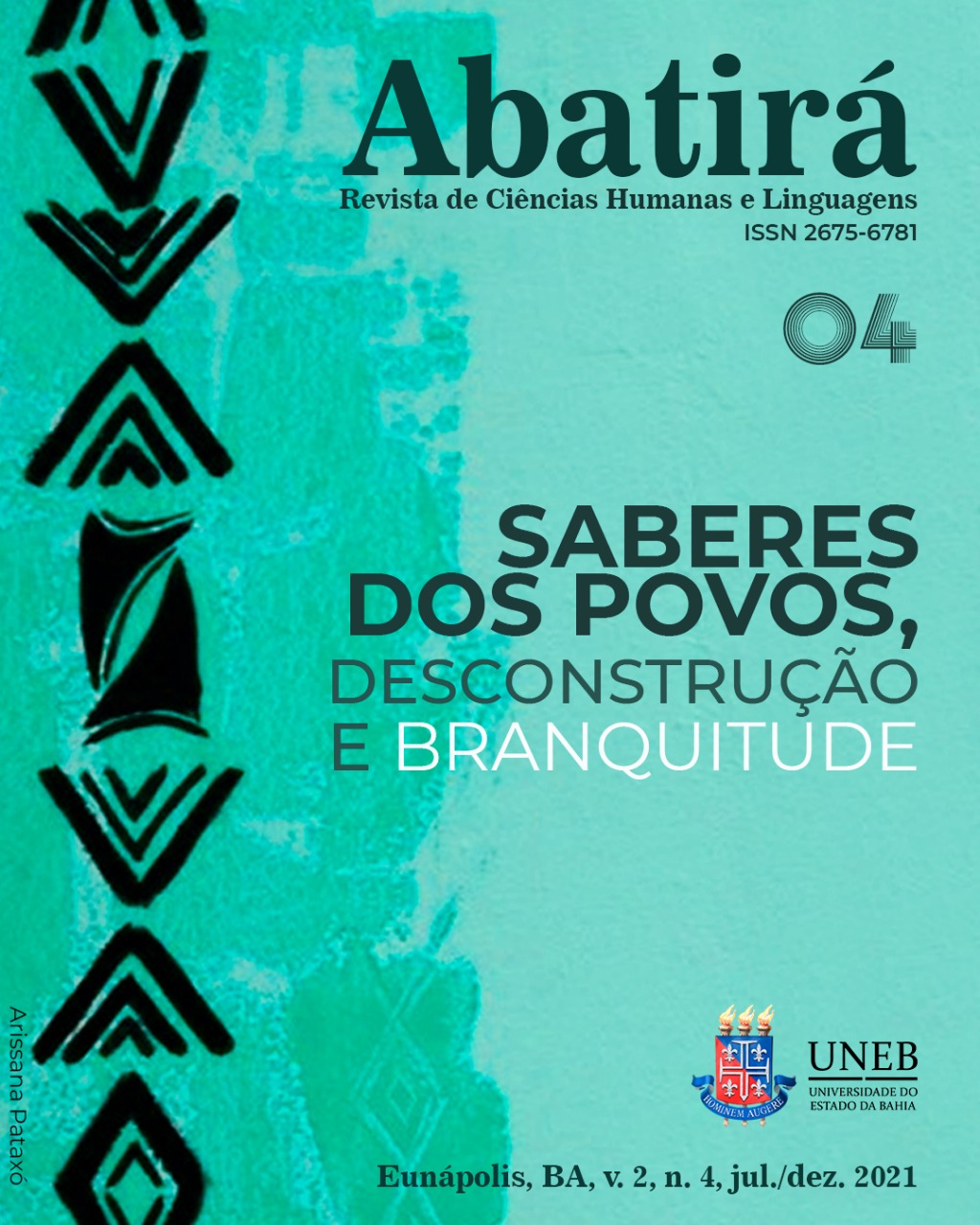For a riot anthropophagy
Between cruzos, resistances and vagrancies, the colonist in the Gira of coloniality
Keywords:
biopolitics, coloniality, cruzos, erasures, colonistAbstract
The present writing, beyond a discussion, is a beginning, therefore, it is not summarized, as it seeks to understand how three formative dimensions, that of the colonizer, the colonized, and the colonist, intersect as explanatory possibilities of the brazilian being within the biopolitical game of body control. In these cruzos, in spite of the fact that coloniality presents itself as a repeated attempt at erasure, other elements from it structure themselves, allowing us to glimpse not only the figure of a colonized mirrored in the metropolitan mannerisms, but beyond that, the emergence of a colonist identified with other possibilities and existences. In this sense, the anthropophagic experience of encounters and cruzos through the streets of a brazilian philosophy, allows the colonist to place himself as a thinker in the recognition of that which is capable of generating him without being confused with him. In the contours of this gingado, in the movement of the gira, the cruzos are possibilities of escaping from the truths of the colonizer, expanding the largest possible number of angles of vision, also allowing one to perceive, in this movement, that the knowledge that echoes in the tropical lands follows traces and is actually rediscovered, because it has always been present, as resistance).
Downloads
References
ADICHIE, Chimamanda Ngozi. O perigo de uma história única. São Paulo: Companhia das Letras, 2019.
AGAMBEN, Giorgio. Estado de exceção: [Homo Sacer, II, I]. São Paulo: Boitempo, 2004.
AGAMBEN, Giorgio. O que é o contemporâneo? E outros ensaios. Tradução Vinícius Nicastro Honesko. Chapecó: Argos, 2009.
AGAMBEN, Giorgio. Profanações. São Paulo: Boitempo, 2018.
ANDRADE, O. de. Manifesto Antropófago. Revista de Antropofagia. São Paulo: Abril Cultural, 1975.
CALLIGARIS, Contardo. Hello, Brasil! e outros ensaios: Psicanálise da estranha civilização brasileira. São Paulo, Três estrelas, 2017.
DAMATTA, Roberto. O que faz o brasil, Brasil? Rio de Janeiro: Rocco, 1986.
FANON, Frantz. Pele negra, máscaras brancas. Salvador: EDUFBA, 2008.
FOUCAULT, Michel. A ordem do discurso: aula inaugural no Collège de France, pronunciada em 2 de dezembro de 1970. 24. São Paulo: Loyola, 2014.
HADDOCK-LOBO, Rafael. Arruaças. Uma filosofia popular brasileira. Rio de Janeiro: Bazar do Tempo, 2020.
HADDOCK-LOBO, Rafael. Os fantasmas da colônia. Notas de desconstrução e filosofia popular. Rio de Janeiro: Ape’ku, 2020.
KRENAK, Ailton. O amanhã não está à venda. São Paulo: Companhia das Letras, 2020.
MARTINS, Lucas Moraes. O significado político do Homo Sacer na filosofia de Giorgio Agamben. Revista Científica Internacional. nº. 1, volume 11, artigo nº. 2, Janeiro/Março 2016. Disponível em: http://dx.doi.org/10.60201679-9844/v11n1a2. Acesso em: 26/07/2020.
NUNES, Benedito. Antropofagia ao Alcance de Todos. IN: Obras Completas – 6. Oswald de Andrade: Do Pau-Brasil à antropofagia e às utopias. Rio de Janeiro: Editora Civilização Brasileira, 1972.
RISÉRIO, Antônio. A utopia brasileira e os Movimentos Negros. São Paulo: Editora 34, 2012.
SANTOS, Rodrigo. Baraperspectivismo: o trágico, relações raciais e o simbolismo de Exu. Rio deJaneiro: Ape’ku, 2020.
SPIVAK, Gayatri. Pode o subalterno falar? Belo Horizonte: Editora UFMG, 2010.
Downloads
Published
How to Cite
Issue
Section
License

Este trabalho está licenciado sob uma licença Creative Commons Attribution 4.0 International License.Você é livre para:
Compartilhar - copia e redistribui o material em qualquer meio ou formato; Adapte - remixe, transforme e construa a partir do material para qualquer propósito, mesmo comercialmente. Esta licença é aceitável para Obras Culturais Livres. O licenciante não pode revogar essas liberdades, desde que você siga os termos da licença.
Sob os seguintes termos:
Atribuição - você deve dar o crédito apropriado, fornecer um link para a licença e indicar se alguma alteração foi feita. Você pode fazer isso de qualquer maneira razoável, mas não de uma forma que sugira que você ou seu uso seja aprovado pelo licenciante.
Não há restrições adicionais - Você não pode aplicar termos legais ou medidas tecnológicas que restrinjam legalmente outros para fazer qualquer uso permitido pela licença.





